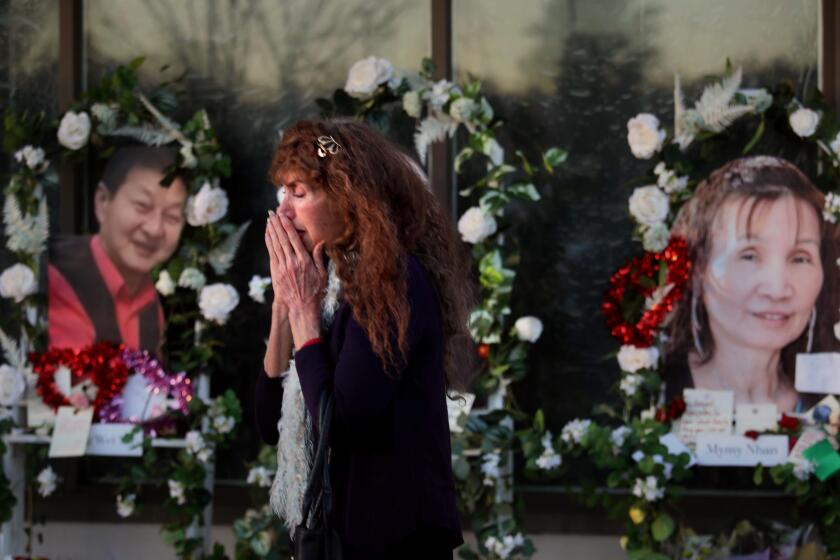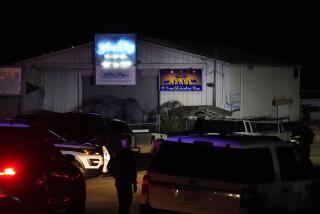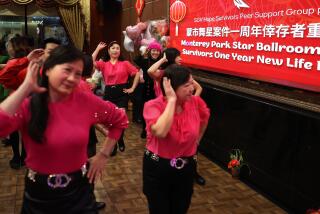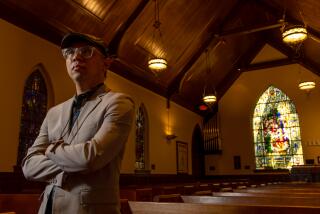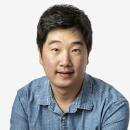3 California mass shootings force grieving Asian Americans to ask painful questions
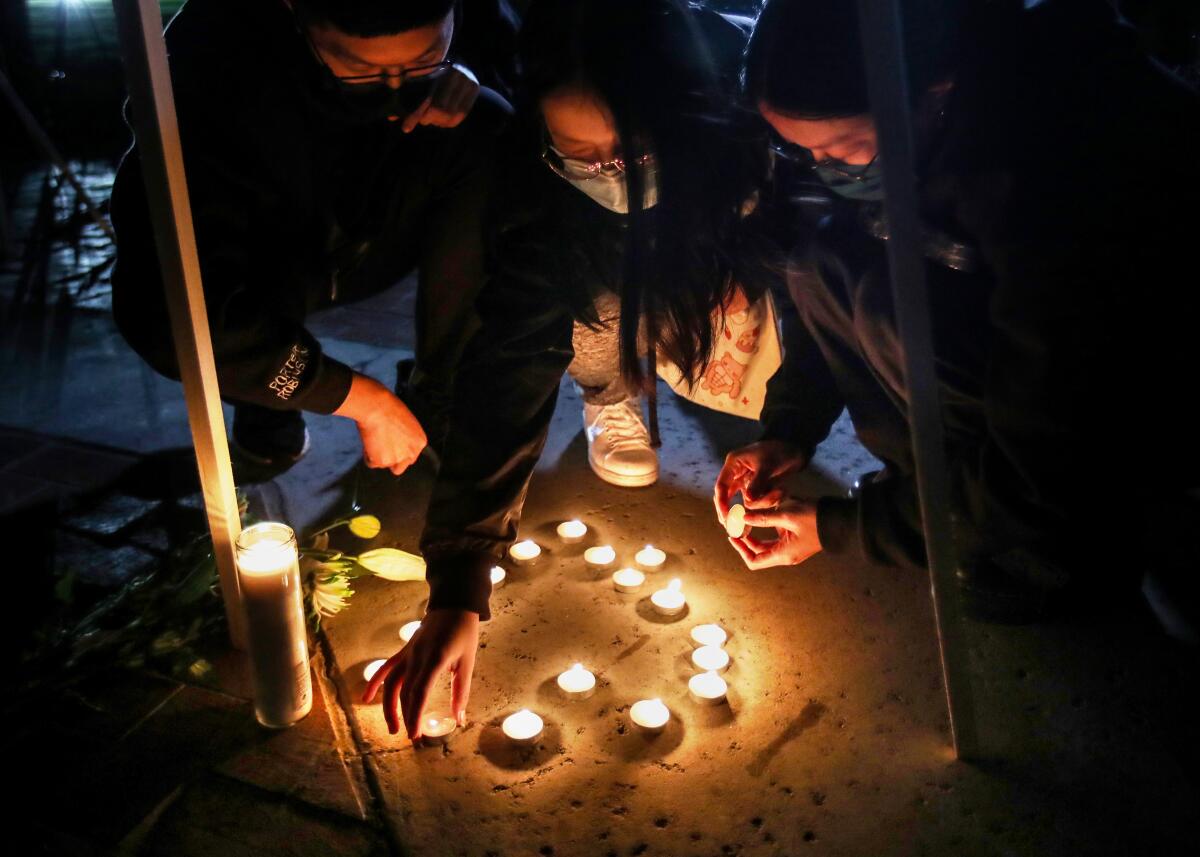
- Share via
Their motives for mass murder appeared to be different — workplace enmity, law enforcement officials said, or personal resentment, or a political conflict in a homeland across the ocean.
But they were all Asian men of retirement age, who within the past year have been accused of expressing their bitterness by spraying fellow Asians with bullets, in the very places where Asian immigrants go to escape isolation.
Even as they grieve the victims, Asian Americans across the country are grappling with a new reality. Someone who looks like their grandfather, who traveled a similar immigrant path, is suspected of committing a singularly American act — opening fire on a group of innocent people, at a Taiwanese church last May, at a ballroom dance studio in Monterey Park on Saturday and in the coastal agricultural community of Half Moon Bay on Monday.
A gunman opened fire at a dance studio in Monterey Park, killing 11 people and wounding 9 more. Tens of thousands had gathered earlier nearby for a Lunar New Year festival.
For a community already reeling from a rise in anti-Asian hate crimes during the pandemic — sometimes with senior citizens as victims — the Asian-on-Asian violence feels like too much to bear, especially with the two most recent shootings occurring around the Lunar New Year holiday.
Only three men are accused of committing these horrific acts, but the isolation and mental health struggles that may have sent them spiraling are common threads for some older Asian immigrants, who may have experienced war back home and who have experienced the dislocation of settling in a foreign country.
Among friends and family on social media, sons and daughters are anguishing over whether they were doing enough for elders who have been through so much but often do not have the vocabulary to open up about problems — even in their native language.
“They don’t speak English. Their kids don’t speak their mother tongue. Older generation cannot connect to younger generation. That is a picture of the typical Asian American working class family, especially East Asian,” said Sonny Le of Oakland, who has worked as a medical interpreter for Vietnamese and Chinese Vietnamese senior citizens for more than 20 years. “Stoic. Bottling it up. It’s a way to cover for our shortcomings, our inability to articulate what we are thinking or feeling.”
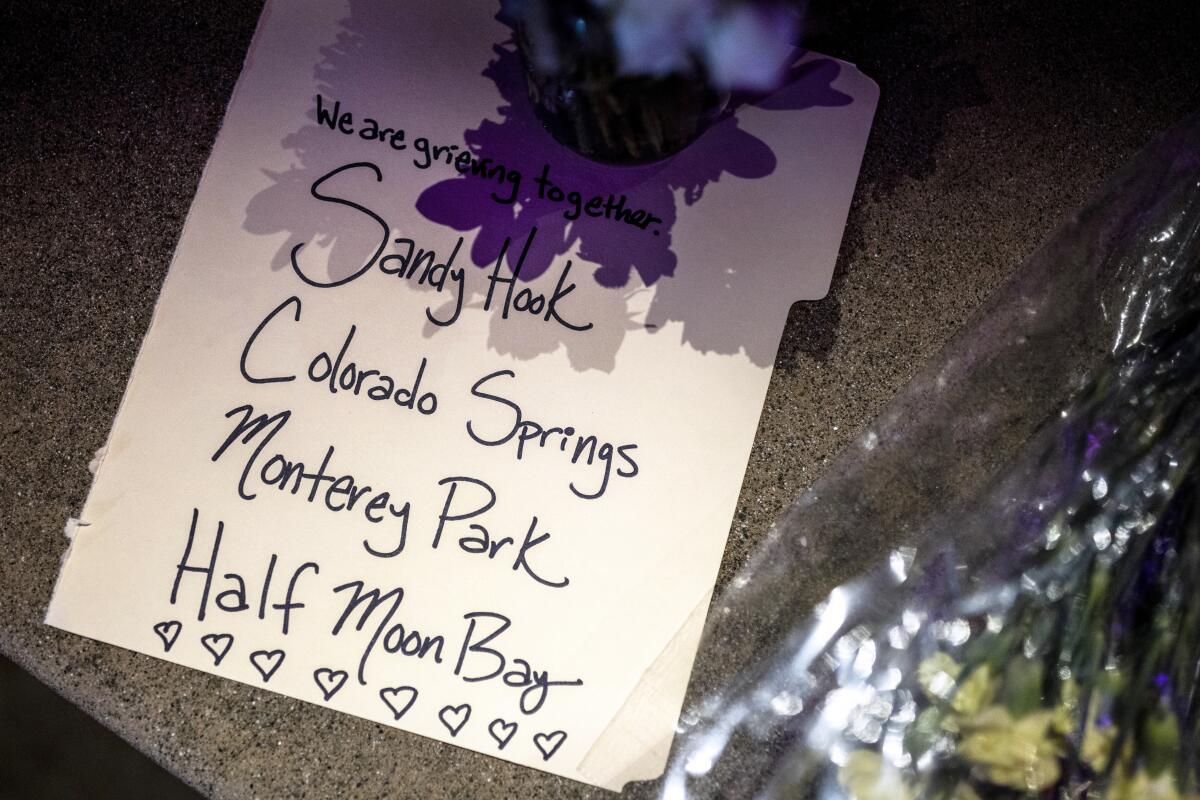
Some groups have organized virtual grief circles because of the recent massacres for people to be together, if only online.
“Know that you are not alone in your pain, your fears, your anger, your urge to disconnect, your need to be with your people,” said an online message Tuesday from 18 Million Rising, an Asian American advocacy group.
Peggy Huang’s parents attend the Taiwanese Presbyterian church in Laguna Woods where a gunman fired into a lunchtime banquet in May, injuring five elderly parishioners and killing a 52-year-old doctor.
David Wenwei Chou, 68, who has pleaded not guilty to murder and attempted murder with hate crimes enhancements in the case, grew up in Taiwan but had recent roots in China.
He left notes in his car indicating that he did not believe Taiwan should be independent from China, said authorities, who believe he “specifically targeted the Taiwanese community.”
Huang’s parents were not at the church that day, but Huang, the former mayor of Yorba Linda, acted as an unofficial spokesperson for victims and survivors.
When Huang heard about the Monterey Park shooting, which killed 11 and injured nine, she feared another possible hate crime as she exchanged texts with family and friends.
It soon emerged from law enforcement sources that the shooter, identified by authorities as Huu Can Tran, 72, may have been motivated by a personal dispute.
With another older Asian man as a suspect, Huang’s thoughts turned to the difficulty of getting treatment for immigrants who may not conceive of their problems as mental health issues.
When elders lose their jobs or retire, that makes for a tough transition, especially for men who had a “life of hard work,” said Huang, 52.
“They’ve been working all their lives, and they really don’t know what to do with their lives,” she said.
Chou, the accused Taiwanese church shooter, lived a life of isolation and resentment in Las Vegas.
His critically ill wife had left him; he was unable to pay his rent, which was twice his monthly income; and he struggled to find work as a 68-year-old casino security guard.
Tran too appeared to struggle, twice reporting to police in Hemet that family members had tried to poison him.
Law enforcement sources are looking into whether Tran, who they believe frequented the Monterey Park dance studio as well as an Alhambra one where he was disarmed by an employee, was driven by jealousy or some other resentment.
Tran, who was born in Vietnam, shot himself in a parking lot in Torrance the day after the shooting and died at the scene.
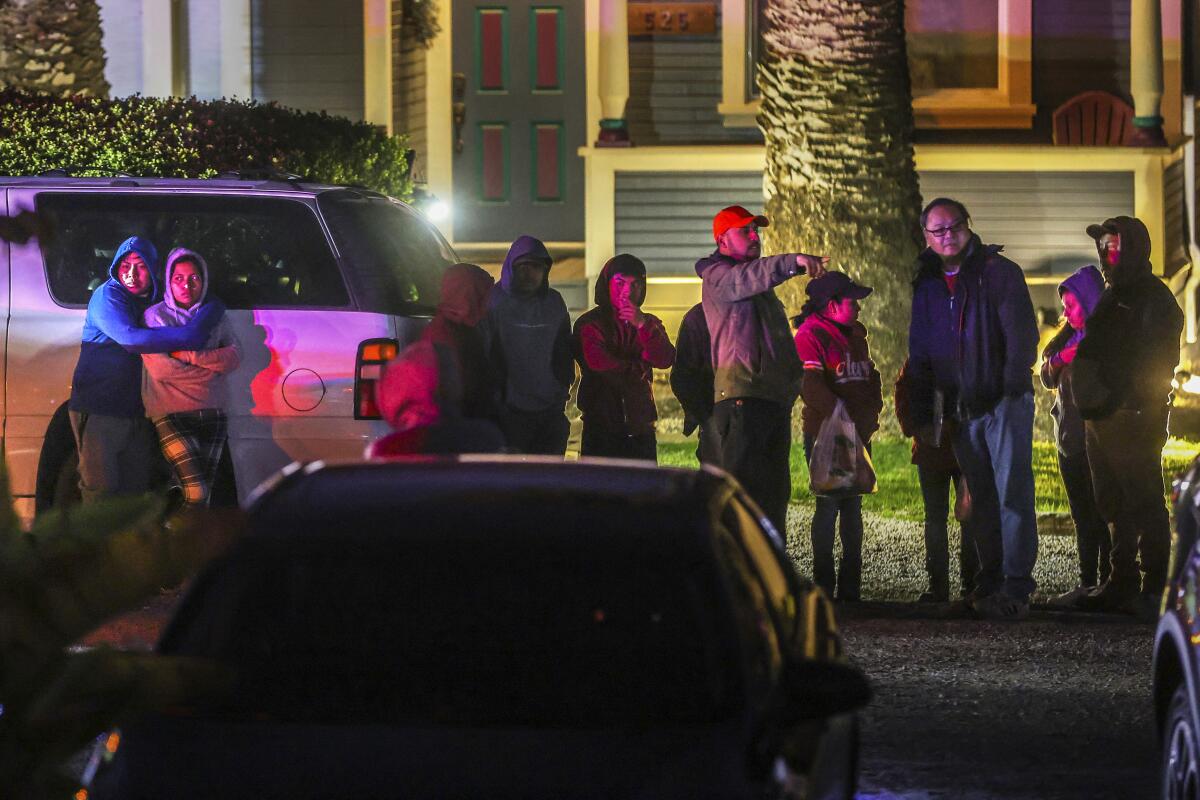
Chunli Zhao, 66, who is suspected of killing seven people and injuring one in Half Moon Bay on Monday, lived and worked on a mushroom farm.
The victims may have been Zhao’s coworkers, said San Mateo County Sheriff Christina Corpus, who characterized the shooting as an “instance of workplace violence.”
The San Francisco Chronicle reported that a former co-worker accused Zhao of trying to suffocate him and filed a restraining order against him in 2013.
Paul Hoang, a licensed clinical social worker, said he felt “deep sorrow” at the news that all three shooting suspects were older Asian American men.
Hoang, founder and CEO of Moving Forward Psychological Institute in Fountain Valley, with clients statewide who are Vietnamese or Chinese, said male Asian immigrants are saddled with expectations to be successful yet are not encouraged to share their feelings.
“If they’re not succeeding or able to give the best to their families, that can be devastating,” Hoang said.
In his practice and as a volunteer delivering home-cooked meals to the elderly, Hoang has seen the isolation that many senior citizens are experiencing during the pandemic, which is compounded for immigrants with language issues.
“They won’t go to shelters or other institutions for help, because those places may not have anyone speaking their language or the food that they’re used to eating,” Hoang said. “Many of the services that are available right now are not culturally sensitive to our communities.”
Older immigrants have a tendency to “keep it inside” and “say less” and are not as open to discussions about mental health as younger Asian Americans, said Jason Huang, 49, who is Taiwanese American and lives in Monterey Park, where Saturday night’s shooting tore through Lunar New Year celebrations.
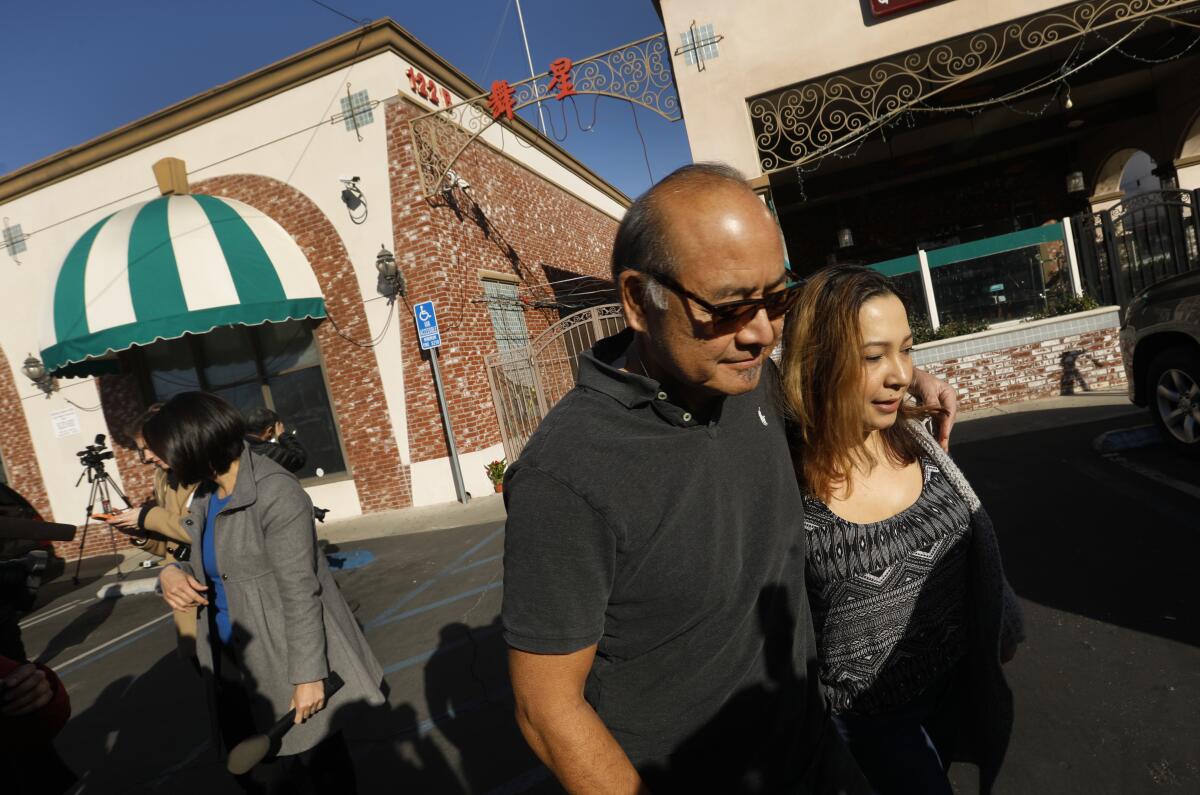
For those reasons, gathering places such as the Monterey Park dance studio where the shooting happened, or parks where immigrants do tai chi and other exercises, are especially important, Huang said.
“The dance hall is a place people knew they could go,” he said. “The older generation who go to the park, they all know to go there.”
The lack of community gathering spaces for senior citizens is an issue in Koreatown, said Steve Kang, director of external affairs for the Koreatown Youth and Community Center. A McDonald’s on Western Avenue has become a quasi-community center.
“That McDonald’s, God forbid if it goes away, that’s going to be detrimental to our senior population,” Kang said. “A lot of our low-income seniors congregate at that McDonald’s because it’s cheap, they can afford the drinks and the meals, and it’s relatively safe and warm and hospitable.”
But even as they are grieving and struggling to make sense of the shootings, people should avoid making sweeping generalizations about elderly Asian men, said Glenn Masuda, senior clinical director of the Asian Pacific Family Center in Rosemead, part of a network of clinics that provide mental health services in California.
“The question that I’m already getting from Asian and non-Asian alike, is what in the heck is going on with these Asian elderly men shooting people?” he said. “It makes no sense. And until we get more data, it’s going to be hard to make sense.”
More to Read
Sign up for Essential California
The most important California stories and recommendations in your inbox every morning.
You may occasionally receive promotional content from the Los Angeles Times.
